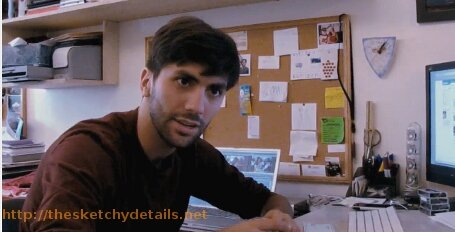There is one fatal flaw to the documentary Catfish. It relies on a twist in the final thirty minutes that completely changes the context of the first hour. Despite being very well-made and creatively shot, I find it had to believe anyone could ever revisit Catfish and find it as powerful or worthwhile as the first viewing. Directors Henry Joost and Ariel Schulman film the growing relationship between professional photographer Yaniv Schulman and a young artist named Abby. Abby finds a copy of one of Yaniv's photos in a major newspaper, paints it, and sends it to him as a gift. Yaniv starts exchanging e-mails with the girl before befriending the entire family on Facebook. He's amazed by the stories of the girl's success in the art world and their family life on a farm. He even develops a romantic relationship with Abby's older sister Melanie, all without ever meeting face to face.

Catfish suffers from a myopic look at its subject. It's docudrama in the vein of a particularly good episode of Hoarders or Intervention, not documentary filmmaking on a single subject like Marwencol or Nick Broomfield's documentaries on Aileen Wuornos. There is no attempt to contextualize what is happening between Yaniv and Abby's family. None of the greater themes are picked up for further investigation. It is roughly ninety minutes of Yaniv getting caught up in the lives of total strangers through Facebook.
With that said, a first viewing of Catfish is quite thrilling. I've read reviews and articles where people swear that large portions of the story are staged. I don't think that's true. I'm willing to take Joost and the Schulman brothers on their word that Yaniv became the subject because they all share an office in Manhattan. The documentary was obviously an extracurricular activity as they routinely mention having to go on photo/film shoots during the film. Henry Joost and Ariel Schulman just became wrapped up in Yaniv's story and thought there was a film there; they were right.
It's so easy to view a film like Catfish with cynicism. Once the truth starts to come out, it changes how you view the early part of the film. I even had a rough idea what was going to happen (too many critics decided to punish the filmmakers for what they didn't do by spoiling what they did do well) and felt the tension building frame by frame.
What Catfish simultaneously does well but doesn't spend enough time on is the issue of trust in the digital age. So much of our business--personal and career--is conducted through electronics. How much can you trust people when you're not meeting face to face? It's not a matter of lying or cruel intentions but context. I see twenty comments a week from people on various sites complaining about the lack of a sarcasm markup code. How much of the truth are we missing by relying on a profile of easily digestible information rather than seeing it all at once in person?
Catfish is, ultimately, one person's story of building relationships in the modern world. The myopic view does well to build tension in what was marketed as a documentary/thriller hybrid. I would strongly recommend watching the film once.
Unfortunately, it's not a film that will maintain its power past that first experience. You might be able to rewatch it to appreciate the editing or the ingenious use of Google Maps to demonstrate the distance between the new friends, but it's never going to be as surprising as the first time.
Rating: 7/10
Thoughts? Love to hear them.